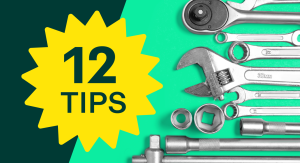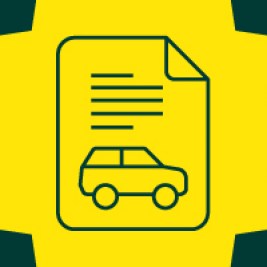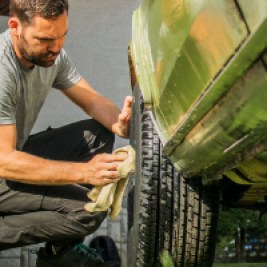
Now that summer’s right around the corner and temperatures are rising, it might be a good idea to make sure your car is in tip-top shape. If you’re going on a road trip this summer, check out some of the tips and tricks we’ve put together for you.
Read your owner’s manual
One of the most important things you can do when you purchase a car is to read the owner’s manual. The manual can help you familiarize yourself with the features of the car and how to operate them. Additionally, they usually provide the maintenance schedule you’ll need for your car.
Save your receipts
If you bought an extended service contract, or even if you didn’t, keeping your maintenance receipts could save you a lot of trouble if something major were to happen to your car and you needed to file a claim.
Take a minute to look over your vehicle
Dedicating a minute or two daily to inspect your vehicle can help you in spotting issues before they escalate. Regular visual inspections could reveal a leak underneath the vehicle, a tire that needs some air or chips in your windshield you may not have noticed from inside the car.
Check your wiper blades
When your wiper blades start leaving streaks on your windshield, or they start squeaking when they run, it’s time to head to the auto parts store to replace them. Most vehicles have easy-to-replace windshield wipers, but if you’re uncomfortable changing them yourself, you should take your vehicle to your local mechanic.
Inspect your tires
Every month or so, it’s a good idea to check your tire pressure and your tread depth. If your car doesn’t automatically tell you your tires are low, you can use a tire pressure gauge to see if you need to air them up. Good tire pressure is important for the health of your tires and more importantly, your safety.
Checking the tread depth is pretty simple as long as you have a penny. If you take the penny and hold it so Abraham Lincoln’s head is upside down, as long as the tire tread covers the top of Abe’s head, your tires have enough tread.
Every six months, it’s necessary to rotate your tires. If you’ve been keeping a maintenance schedule, you’ll know exactly when it’s time to head to the tire shop to have them rotated.
Change the oil regularly
If you’re comfortable changing the oil in your car yourself, you should make sure you log your oil changes in your maintenance log. If you’re like me, and you’re not confident you can change your oil, you should go to your local mechanic to have it changed.
Most shops will put a sticker on the inside of your windshield to remind you when you need to get your oil changed again. Over time, your motor oil gets dirty from running through your motor, and if it gets too dirty, you could lose performance and damage your engine.
Wash and wax the car
One of the simpler things you can do to maintain your paint job is to regularly wash and wax your vehicle. Some warm, soapy water will do wonders for your paint. Waxing it helps form a protective barrier to keep tar, dirt and rust from damaging your car.
Inspect the battery
The battery is a very important part of your car. A dead battery can leave you stranded somewhere and ruin your day. You’ll be looking for signs of rust or corrosion on the posts that connect the battery to the car. You can either clean them yourself, or go to your local mechanic.
Check your fluid levels
Checking your fluid levels is important as your car needs several different kinds of fluids to run as smoothly as possible. The motor oil and radiator coolant levels should be checked every month or so. You can easily check these while you’re filling up at a gas station. If you’re not comfortable under the hood, you should bring the car to your local mechanic to help you.
Look at your lights
Every month or so, it’s a good idea to check your headlights and taillights. Driving around with burned-out lights is dangerous and could get you a traffic citation. Plus, driving is stressful enough without having to guess when a car is braking. If your turn signal starts clicking much faster than normal, it could indicate that the bulb is going out, or a fuse is blown and needs to be replaced.
Examine your air filter
By visually examining your air filter, you can assess whether it needs replacement or not. A dirty air filter can prevent clean air from getting to the motor, which could cause poor fuel efficiency. If you notice your car isn’t performing as well as it used to, you might bring it into the mechanic to have the filter replaced if you’re not comfortable changing it yourself.
Some newer cars have air filters that are difficult to get to, so make sure to check your owner’s manual before you start pulling pieces off your car and remember that professionals can replace these very easily.
Clean out your car
This might be something most folks don’t need to be reminded of, but a dirty car can lead to direct safety hazards. Loose items on the floor can get stuck under the pedals or jam up your feet when you need them most. Plus, it’s nice to have a clean-smelling, washed and waxed car.
Drive® can help you if you’re looking to get a vehicle loan. Our pre-qualification* only takes about two minutes, and it doesn’t impact your credit score. Check out our quick pre-qualification tool here.
*Pre-qualification subject to approval. Final credit terms are subject to change based on submittal of a credit application at a participating dealer, which may impact your credit.



